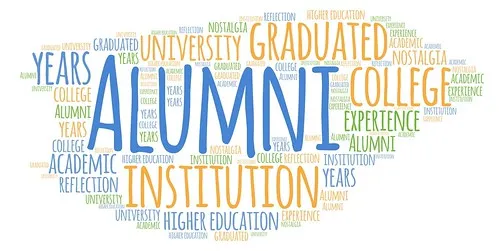Alumni giving is a cornerstone of university funding, providing essential resources for scholarships, programs, and campus improvements. As graduates reflect on their time at university, many choose to contribute financially, ensuring that future students have similar opportunities. This article examines the importance of alumni giving, the various forms it takes, and its impact on universities and their communities.

The Significance of Alumni Contributions
- Essential Financial Support: Alumni donations help fill budget gaps, fund scholarships, and support academic programs, enabling universities to maintain high educational standards.
- Fostering Alumni Engagement: Contributions create a sense of belonging and connection among graduates, encouraging ongoing involvement with their alma maters and fostering a culture of giving.
- Enhancing Institutional Reputation: A robust alumni giving program enhances a university’s reputation, attracting prospective students and additional funding opportunities from foundations and corporations.
Forms of Alumni Giving
- Monetary Donations
- Alumni often make one-time or recurring donations, directing funds toward specific initiatives, scholarships, or campus improvements.
- Universities frequently run targeted campaigns to inspire alumni to contribute to areas of greatest need.
- Endowments and Planned Gifts
- Some alumni establish endowments or make legacy gifts, providing long-term support for academic programs, scholarships, or research initiatives.
- These contributions ensure sustainable funding for future generations of students.
- Volunteerism and Networking
- Alumni can also give back by volunteering their time and expertise, serving as mentors or guest speakers, and participating in university events.
- Mentorship programs can enhance student experiences and provide valuable industry insights.
- Corporate Collaboration
- Alumni in key positions can facilitate partnerships between their employers and universities, resulting in internships, job placements, and financial support for programs.
- Such collaborations create pathways for current students and enhance their professional networks.
Impact of Alumni Giving
- Support for Student Success: Alumni-funded scholarships alleviate financial burdens, allowing students to focus on their education and extracurricular activities without excessive debt.
- Program Expansion and Development: Donations enable universities to develop new programs, enhance facilities, and invest in technology, enriching the educational environment.
- Advancements in Research: Alumni contributions often support innovative research initiatives, driving advancements in various fields and contributing to societal progress.
Examples of Effective Alumni Giving
- Harvard University
- Harvard boasts one of the highest alumni giving rates in the nation, with contributions significantly bolstering scholarships and faculty research. Their success serves as a model for other institutions aiming to enhance alumni engagement.
- Stanford University
- Known for its strong philanthropic culture, Stanford’s alumni actively support the university’s endowment, enabling substantial financial aid offerings and expanding access to education for diverse student populations.
- University of Michigan
- The University of Michigan has a robust alumni giving program, with initiatives that encourage alumni to support specific projects, scholarships, and campus enhancements, creating a strong sense of community and investment in the university’s future.
Conclusion
Alumni giving is a crucial element of university sustainability and growth. Through their financial support and active engagement, alumni help shape the future of their institutions and enhance the educational experiences of current and future students. As universities evolve to meet new challenges, fostering a strong culture of alumni giving will remain vital for maintaining and improving the quality of education.